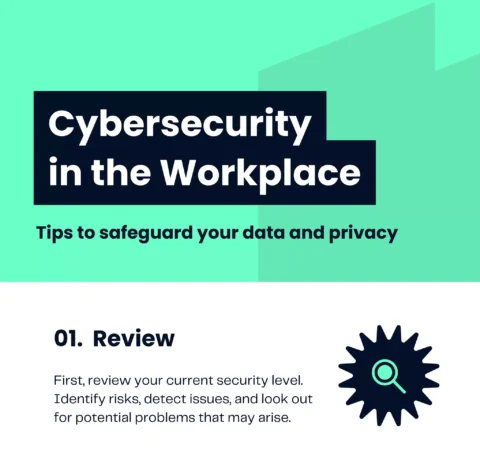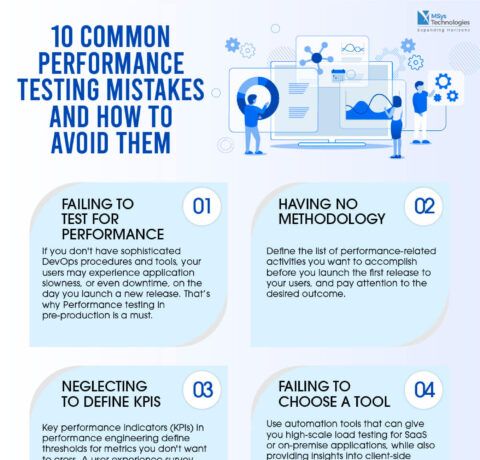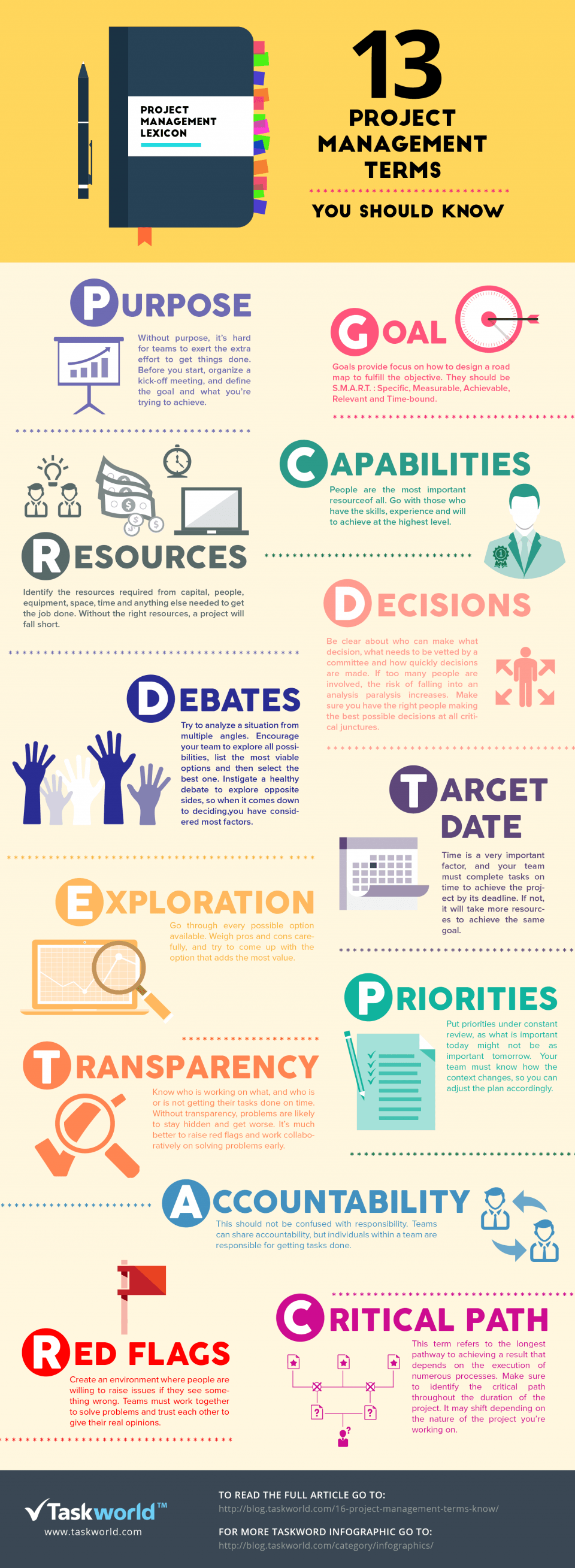Top 13 Project Management Terms You Should Know
As a project manager, there are certain terms that you must be well-versed with. A study of these is an excellent place to start to improve your personal management style.
Here are 13 important project management terms for your perusal.
- Purpose
Without purpose, it’s hard for teams to exert the extra effort to get things done. Before you start, organize a kick-off meeting, and define the goal and what you’re trying to achieve. - Goals
Goals provide focus on how to design a road map to fulfill the objective. They should be S.M.A.R.T.: Specific, Measurable, Achievable, Relevant and Time-bound. - Capabilities
People are the most important resource of all. Go with those who have the skills, experience and will to achieve at the highest level. - Resources
Identify the resources required from capital, people, equipment, space, time and anything else needed to get the job done. Without the right resources, a project will fall short. - Decisions
Be clear about who can make what decision, what needs to be vetted by a committee and how quickly decisions are made. If too many people are involved, the risk of falling into an analysis paralysis increases. Make sure you have the right people making the best possible decisions at all critical junctures. - Debate
Try to analyze a situation from multiple angles. Encourage your team to explore all possibilities, list the most viable options and then select the best one. Instigate a healthy debate to explore opposite sides, so when it comes down to deciding, you have considered most factors. - Exploration
Go through every possible option available. Weigh pros and cons carefully, and try to come up with the option that adds the most value. - Transparency
Know who is working on what, and who is or is not getting their tasks done on time. Without transparency, problems are likely to stay hidden and get worse. It’s much better to raise red flags and work collaboratively on solving problems early. - Accountability
This should not be confused with responsibility. Teams can share accountability, but individuals within a team are responsible for getting tasks done. - Target Date
Time is a very important factor, and your team must complete tasks on time to achieve the project by its deadline. If not, it will take more resources to achieve the same goal. - Priorities
Put priorities under constant review, as what is important today might not be as important tomorrow. Your team must know how the context changes, so you can adjust the plan accordingly. - Red Flags
Create an environment where people are willing to raise issues if they see something wrong. Teams must work together to solve problems and trust each other to give their real opinions. - Critical Path
This term refers to the longest pathway to achieving a result that depends on the execution of numerous processes. Make sure to identify the critical path throughout the duration of the project. It may shift depending on the nature of the project you’re working on.







You can adjust your cookie preferences here.